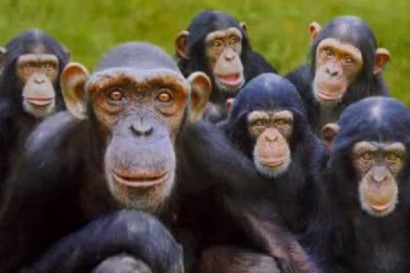On a classic episode of Conan O’Brien’s self-titled TV show, the wildly famous entertainer had an impromptu conversation with several young women from South Korea. The basis of the joke was that the girls had no idea who he was. To western audiences, this, of course, seems impossible.
All of us could have a similar interaction with a group of strangers. Unlike Conan, however, we wouldn’t need to find a group of giggly foreigners to do so. As non-celebrities, practically nobody knows who we are. This isn’t a judgment of your worth, but rather a statement of mathematical fact. In a world of six billion people, the number of individuals who could pull you out of a crowd is vanishingly small.
In the modern age of social media, it’s a bit easier to get a sense for the value of this figure. Everybody who is your friend on Facebook would probably also be able to spot you. So if you have a couple hundred Facebook pals, you may have a couple hundred people who have something to say about who you are. When specifying your personal brand, it might seem like this group of people is your audience. After all, you’re friends because you know them. If you are working to refine your image, won’t these be the people most likely to witness the new, carefully polished you?
It turns out, however, that there is no one who will have a harder time accepting your new brand than your friends and acquaintances. We all develop impressions of those around us based on interactions. Your new look, your new hobby, your new philosophy or your new career is just a minor, recent variation on a long history of conflicting information. Ask anyone who became a vegetarian how long it took their extended family members to stop handing them plates loaded with meat. Most will tell you that very few people seem to be able to remember such a crucial detail. Change is tough to accept, and even harder to remember.

The anthropologist Robin Dunbar notes that the brain of the average primate can only hold about 150 meaningful social relationships. Beyond that, we start to generalize what we know about others. This finding has two important implications. First, if your personal brand isn’t laser sharp you’re going to appear to be lots of different things to lots of different people. Second, and more importantly, there are a lot more people outside your Dunbar circle than within. Of all the people who have heard your name before, most are people you don’t really know.
It’s nearly impossible to convince the people who know you that you’ve changed. That’s why people change jobs to get a new salary or move to new cities to escape the aftermath of a bad relationship. It’s easier to broadcast your personal brand among people who don’t have any preconceptions than it is to make adjustments in the minds of those who have already formed an opinion.
But if you aren’t planning to fake your own death or delete your Facebook profile, you still want to focus your personal marketing efforts on the people who don’t know you yet. If you are seeking a new job, you want those who Google your name to be impressed with your commitment and your online presence. If you’re positioning yourself as a consultant, you want those who have only heard your name to associate it with your area of expertise. If you are trying to impress potential clients, then you want those who have only heard about your services to use your preferred language when spreading the word about what you do.
It’s not easy to establish a clear and effective personal brand. But it is easy to know who will be best to hear it: those who have no idea who you are. The best market is always the blank slate. Thank goodness you are not famous. Instead, you get to decide how others will come to know your name.
Ready to meet the next person who doesn’t know you? Schedule your next event.
 |
Robby Slaughter is a workflow and productivity expert. He is the founder of AccelaWork, a business improvement consulting company. His team works with a wide variety of organizations, including Fortune 500 companies, regional non-profits, small businesses and individual entrepreneurs to help increase productivity, simplify workflow and optimize business processes. Robby has written numerous articles for local publications such as the Hamilton County Business Magazine and the Indianapolis Business Journal. He has also been interviewed by national news outlets including the Wall Street Journal. Robby is a local and nationally known speaker. He is also the author of several books. His latest is “The Battle For Your Email Inbox.” Twitter @robbyslaughter |












